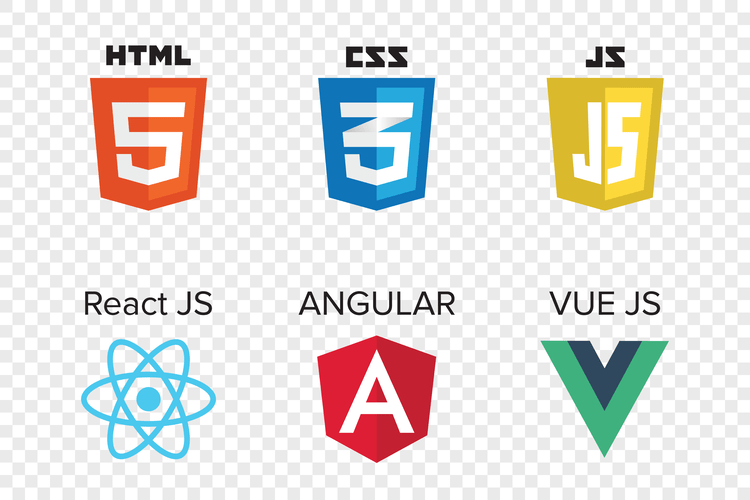Best Manufacturing Execution Systems MES Software Reviews 2023
Enterprise resource planning (ERP) systems help companies in all types of industries manage and integrate essential business functions and processes in one system. Features such as accounting, customer relationship management (CRM), human resources (HR) and supply chain management simplify workflows, reduce inefficiencies and streamline productivity. To help you choose the right solution for your business, we found and ranked the best ERP systems in the market today. Katana Manufacturing ERP is a cloud-based tool crafted for the streamlined management of production processes among small manufacturers. It provides features like real-time inventory monitoring, production scheduling, and order management.
With its cloud-based accessibility, 24SevenOffice allows businesses to manage finances, customers, and projects seamlessly. Global Shop Solutions offers a complete manufacturing management system suitable for small businesses. It covers various aspects of manufacturing, including job scheduling, inventory control, and shop floor management, enabling companies to streamline operations and improve overall productivity. Some manufacturers quickly outgrow QuickBooks as their manufacturing system for a solution that offers features like material requirements planning, quality management, production scheduling, and BOM. Manufacturers can choose to either find a software solution that integrates with QuickBooks in order to keep accounting on a familiar platform, or completely replace QuickBooks with a fully integrated system.
Ansys, Materialise Partnership Connects Industry-Leading Solutions to Enhance Additive Manufacturing Software
Additive manufacturing and new 3D printing technologies now allow manufacturers to build parts and products that were once deemed too difficult or outright impossible to make. As a result, the additive manufacturing market value is projected to grow over $6 billion by 2022 according to MarketWatch. Technology is always changing in the world of manufacturing, from the automation of the earliest assembly line to the rise of augmented and virtual reality. Today, manufacturing ERP distributors are always looking for new ways to incorporate evolving tech into software solutions. Combining CX Service with IoT enables you to deliver a predictive customer experience.
These buyers require a robust and integrated platform to streamline inventory operations, optimize stock levels, minimize stockouts, and facilitate efficient order fulfillment. To set up a manufacturing ERP, begin by assembling your project team and writing your project and change management plan. Next, determine your workflow needs and research providers with solutions to meet them. Finally, migrate your old data to the new system, train your ERP users and roll out your system company-wide while leaning on your project and change management plans. For example, it helps to manage replenishment by defining your needs and putting in processes and automations to meet them. It also allows you to track where your inventory is in real time while maintaining a database of suppliers you can turn to when inventory is needed, complete with your purchase history for easy reordering.
Acumatica – Best for ERP
Manufacturers producing complex products with various components can benefit the most from an MES because it will give them better visibility of the supply chain and improved data collection. An MES may be a module within an ERP or can be purchased as a separate solution that integrates with an ERP. It monitors the production process from order release to delivery, providing real-time data about each stage of the production line. The following is a list of the most common manufacturing systems, what they do, and how your manufacturing process might benefit from using them. With all the steps needed to produce inventory at scale, using the right software to manage and streamline operations has become a necessity in modern manufacturing companies. Autodesk advanced manufacturing software connects your design, engineering, and manufacturing teams using a single tool to ensure performance, end-user requirements, and manufacturability are all met.
- Many on-premises, perpetual license options come with an implementation fee that is cost-prohibitive for small businesses.
- Additionally, satisfied customers are more inclined to recommend the business to their friends and family, thus expanding its customer base.
- You also consider factors like ongoing support, regular updates, and scalability.
- Furniture maker uses cloud-based collaboration and automated nesting to improve consistency and reduce scrap rates to 5%.
- If the process has stages with delays in between, such as a fermenting stage, then the system can match orders of ingredients to the time when they are required.
This all-in-one solution includes a basic pricing plan of just $29 for the first 30 employees. Sure, you might already have approaches to inventory management, material cost estimating, and ordering. To determine the best ERP systems in the market, Forbes Advisor considered over 20 of the leading providers in the space and narrowed it down to the top 16 providers. These were then analyzed across five primary categories for a total of 25 different metrics.
What are the five ERP modules?
The solution offers real-time insights into operational and financial performance while automating core processes. One of the key benefits of a manufacturing software package is that it facilitates many tested and proven best practices in production and manufacturing. For example, manufacturing software applications make it easier to anticipate demand, manufacturing cloud solutions and can increase the accuracy of bill of materials. Additionally, manufacturing software helps companies better determine what components they will need and when they will need them. As a result, it allows for effective implementation of a just-in-time manufacturing model that can dramatically reduce inventory storage costs and improve cash flow.

It can be configured for needs ranging from distribution, manufacturing and point of sale to construction and retail-commerce. Available for deployment both on-premise and in the cloud, it’s especially beneficial for small and medium businesses. Similiar to the pricing question, it all depends on the manufacturing management software solution that you use. Some will be easy to implement and easy to use while others have a long learning curve. Only by understanding what features are critical for the software to include can you start to narrow down a list of the best manufacturing software solutions. NetSuite is widely regarded as one of the best electronics manufacturing software solutions for several compelling reasons.
NetSuite — Good for: Procurement Management
One of its standout attributes is its capability to support rapid scaling, making it an ideal choice for businesses poised for exponential growth or those juggling a broad range of products. As the business expands, NetSuite’s modular design allows for easy integration of new functions and features without overhauling the entire system. To help you choose the right solution for your business, we found and ranked the best small business manufacturing software in the market today. Ineffective inventory management practices can lead to a range of consequences, including diminished customer satisfaction due to low order fill rates and backorders. Additionally, long lead times, work stoppages, and underutilized labor may result from such practices.
Its comprehensive set of features and functionalities make it an ideal choice for streamlining operations, enhancing efficiency, and driving growth in the electronics manufacturing industry. The all-in-one point-of-sale system ConnectPOS is recognized as one of the best solutions for electronics manufacturing software due to its exceptional features and capabilities tailored specifically for the industry. We offer a range of benefits that can significantly enhance the efficiency and effectiveness of operations in electronics manufacturing companies. With technological advancements and automation transforming the manufacturing industry, small and medium businesses need to leverage the right software tools to stay competitive & drive growth. The global manufacturing operations management software market was estimated at USD 15.24 billion and is projected to grow rapidly, expanding at a compound annual growth rate of 12.9% from 2023 to 2030.
Find the best Process Manufacturing Software
Epicor’s manufacturing-specific modules include inventory and supply chain, warehouse management, business intelligence, finance and accounting and distributor modules. For example, its inventory and supply chain module offers tools to manage inventory replenishment, demand forecasting, buying-trend tracking and updating suppliers of needed materials. QT9 offers ERP solutions catered to companies using highly regulated manufacturing processes accompanied by strict compliance protocols. It does so via an all-in-one ERP and quality management system (QMS) software.

If accepted, the system will assign the action to a responsible party and start a workflow to investigate the root cause of the issue. Quality managers can attach documentation, assign priority to and monitor the status of each submitted action. As a small business looking for your first manufacturing system, you may be unwilling to give up using certain programs, such as QuickBooks or Shopify. Katana offers integration with dozens of popular options or allows you to create workflows via API.
The Best Manufacturing ERP Software
They include whether you want to purchase a cloud-based or on-premises solution, the number of users and the modules included. Most manufacturing ERP providers require potential clients to request a custom quote and, so, do not offer pricing information online. In addition to being able to connect all your internal teams, you can also connect all locations that participate in your supply chain. In contrast, manufacturing ERP software covers a wide range of applications and functionalities which together can be thought of as an industry-specific ERP software. The user-friendly tools available for managing the manufacturing process can be even more varied depending on the type of manufacturing software your business needs. Manufacturing ERP software for production planning and scheduling helps estimate the quantity and timing of material and labor inputs you need to complete jobs as efficiently as possible.
MasterControl Quality Excellence
Establish serial numbers and batches, supervise machine runtimes, allocate stock items and more with practical production management tools. The best ERP software for manufacturing should tell you about the financial impact across all production operations, from supplier relationships to transportation. One of the most significant benefits of manufacturing ERP software is visibility into how shop-floor operations impact financial results.
Honeywell Forge Operations Management
Genius ERP is an end-to-end management software for custom manufacturers looking to take control of and centralize all of their operations. It automates lengthy tasks, provides accurate estimates, reduces stoppages on the shop floor and uses historical data to optimize upcoming production. Features include product engineering, inventory control, project management, customers, quality control, employees, production planning, vendor management, accounting, sales CRM, rest API, and BI and reports. Epicor Kinetic is a user-friendly manufacturing software solution designed to enhance productivity and efficiency in small businesses. It provides tools for inventory management, production planning, and quality control, helping companies achieve greater visibility and control over their manufacturing processes.






